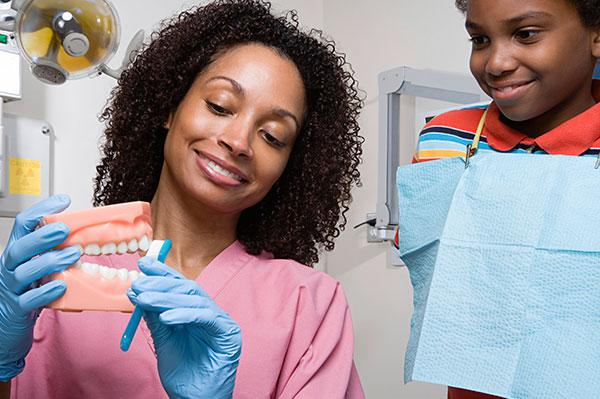In the future, I strive to become a professional dental hygienist who can play an important role in the community. In my opinion, the dental hygienist performs a key function in maintaining the well-being of people, as he contributes to the prevention of the development of various dental diseases. It is also important that, as a future professional, I will be actively involved in expanding the community’s knowledge of the necessary daily oral hygiene. Dental hygienists are often viewed by the public as less important than dentists, orthodontists, or surgeons. However, I am sure that this profession is the basis of dental practice, as it deals with the prevention of diseases.

Dental hygienists are responsible for promoting healthy dental care habits among various populations.
Dental hygienists are also constantly involved in research and improvement of the techniques used in the profession. In particular, the range of research interests of professionals in the field of dental hygiene is extremely wide. As a future specialist in this field, I also strive to contribute to the expansion of the knowledge of dental hygienists. In my opinion, these specialists can play a key role in the prevention of many serious diseases. To achieve this, not only effective methods of diagnosis and treatment are required, but also active communication with community members. People need to know more about the importance of dental hygiene and the role it can play in preventing oral and other diseases. Thus, in addition to research, I would like to educate the public in this area in order to provide a better level of prevention of the development of acute conditions. In particular this is especially important for the most disadvantaged communities, as dental care is not available to all people who need it. My mission as a dental hygienist is not only to work within a clinical setting, but to actively promote everyday hygiene techniques in the community.
The research proposal is to investigate the relationship that exists between poor dental hygiene and the occurrence of cancer. Researchers are currently looking at a variety of factors, including alcohol use, tobacco smoking and other bad habits and their impact on the occurrence of oral cancer. Poor oral hygiene is one of the most significant contributing factors to the development of this disease. However, there is a limited amount of research that focuses on the development of methods to prevent the development of the disease. In particular, little attention is paid to the development of a strategy for educating the population and members of the community about this problem.
As part of the study, I would like to see which population groups are most affected by this problem and how it is associated with poor dental hygiene. Based on the data obtained, I would like to make recommendations that could be applied by professional dental hygienists to increase community awareness of cancer prevention measures due to poor oral hygiene. This line of research is extremely significant because it uses theoretical knowledge to develop practical recommendations that can later be applied by professionals. Increasing public awareness of the possible negative consequences of dental hygiene can greatly contribute to the prevention of cancer. In turn, this aspect can result in a decrease in the number of cancer patients and a reduction in the resources needed for their treatment. The research hypothesis is that members of the most disadvantaged communities are most likely to develop oral cancer due to poor oral hygiene.